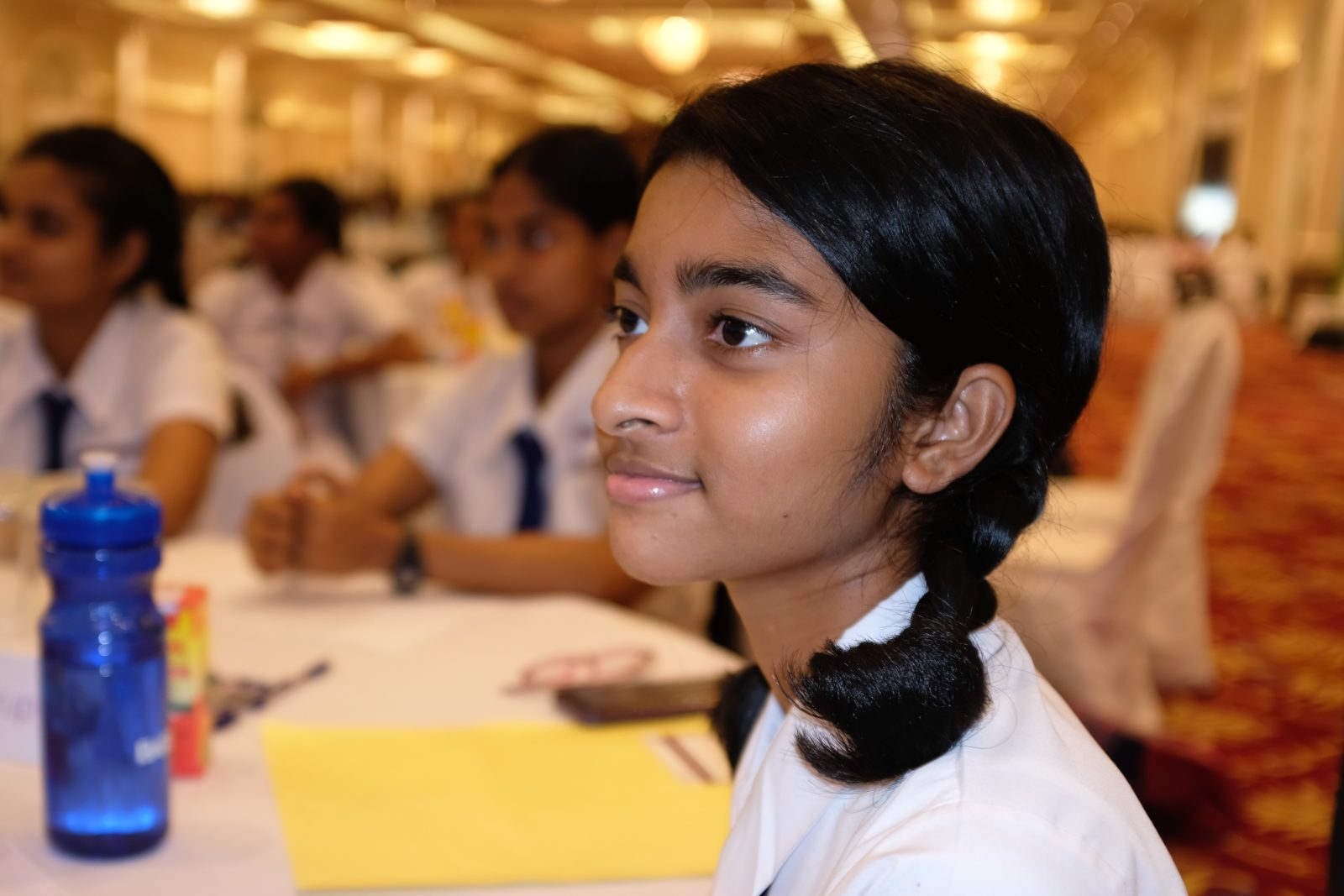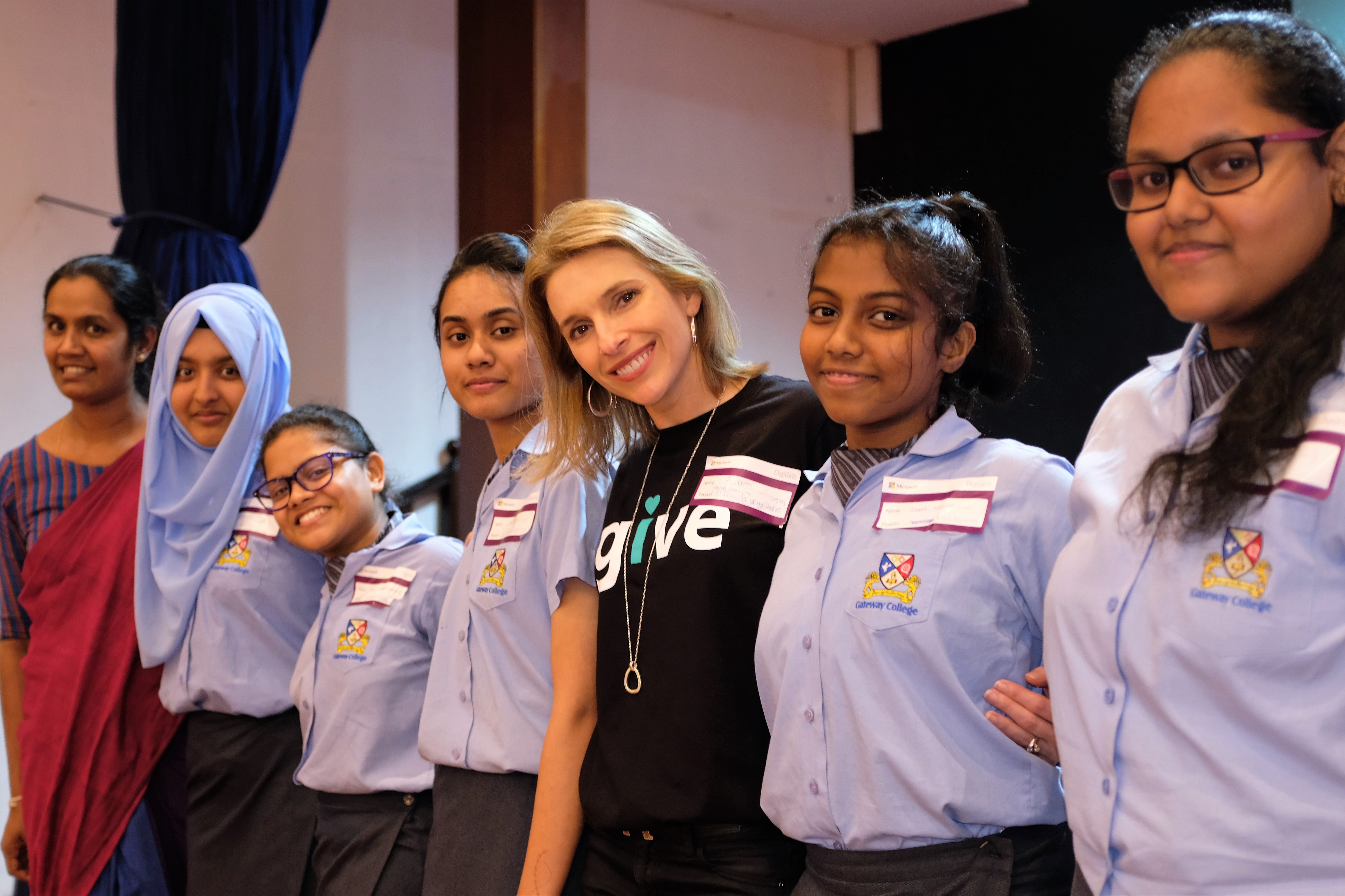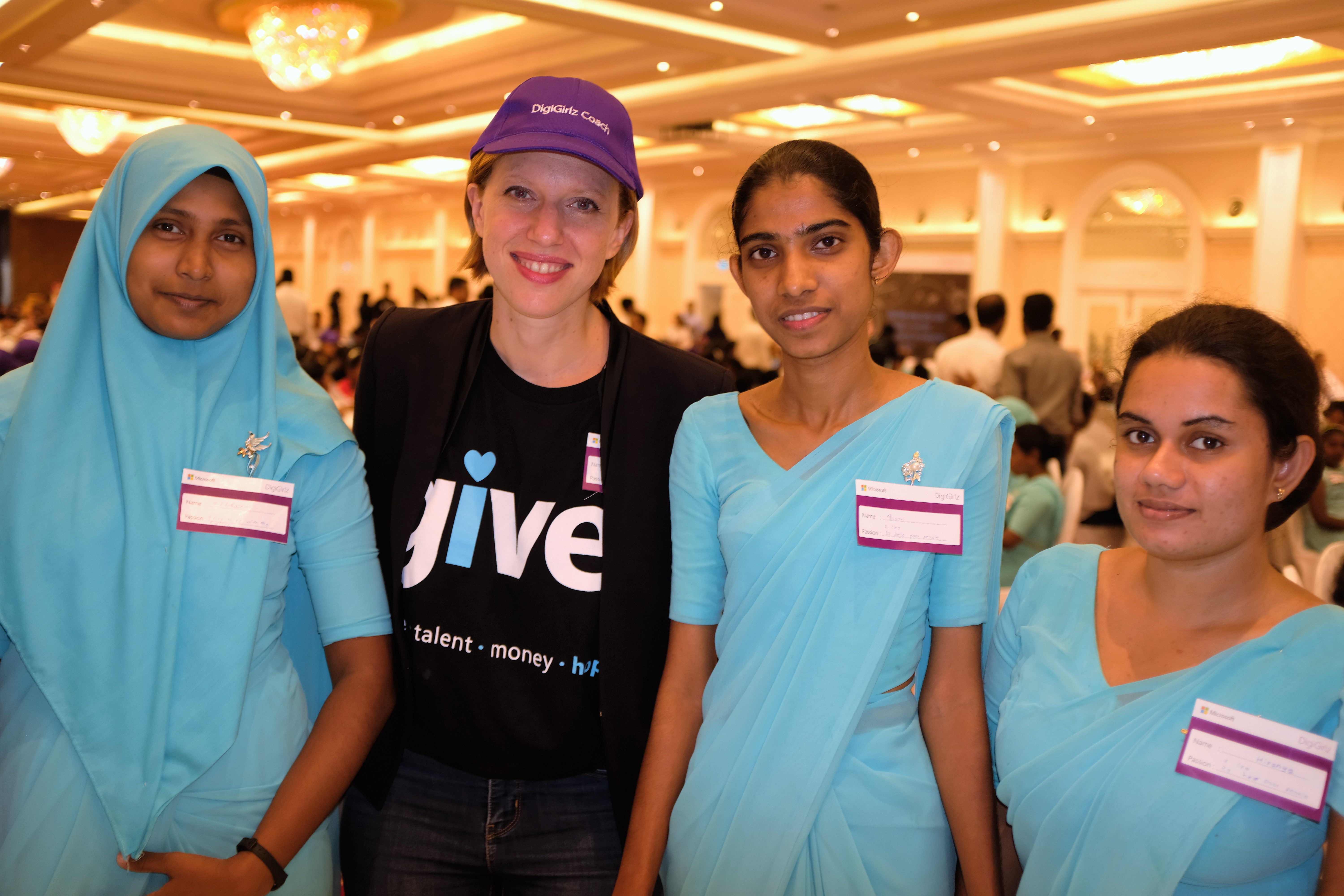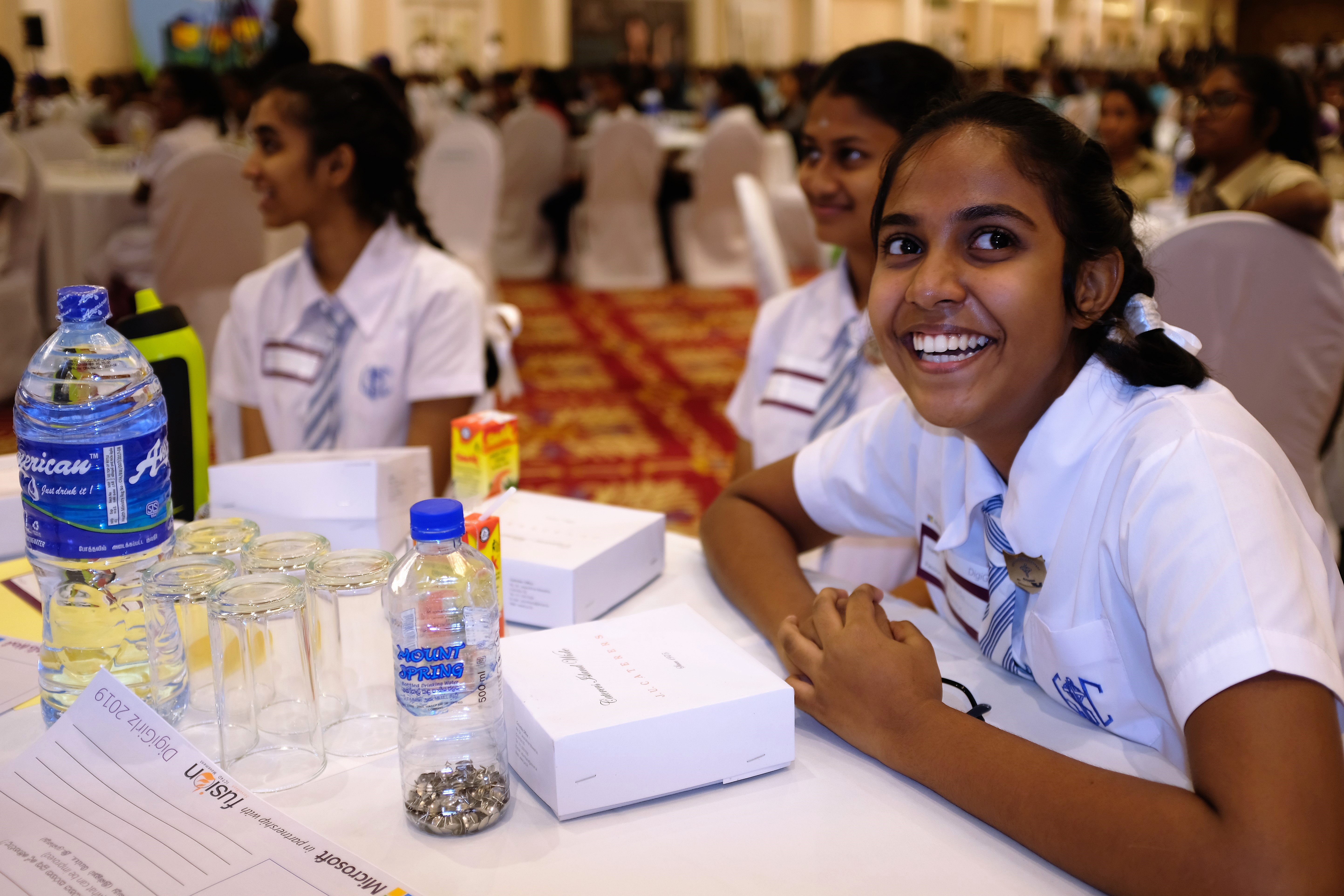
Women and girls in STEM: Having a critical role in shaping Asia Pacific’s future
Hundreds of girls in Sri Lanka celebrate International Women’s Day with career coaching and new skills
Asia Pacific countries can reach new heights of innovation, inclusiveness, and prosperity when more girls and women pursue education and careers in science, technology, engineering and math (STEM), Microsoft APAC President Andrea Della Mattea says.

“Women and girls play a critical role in shaping our future. We need more scientists, mathematicians, inventors, engineers, and leaders, which means we need more girls studying science, technology, engineering, and math in schools,” she told an International Women’s Day career coaching event for about 500 female students, parents, and teachers in the Sri Lankan capital, Colombo.
“At Microsoft, our mission is to empower every person and every organization on the planet to achieve more. We strive to create a diverse and inclusive environment, which enables and inspires all people to achieve more.
“Attracting, developing and helping women in STEM fields to thrive is vital for an inclusive society and prosperous country.”
The daylong DigiGirlz event was held at the Sri Lankan Prime Minister’s office complex where participants met female role models, solved real-life challenges, explored career options, and picked up new skills, such as coding.
Senior Microsoft Asia Pacific executives took part in workshops that showed students how STEM could be used to develop their passions. They were encouraged to adopt a growth mindset, to challenge themselves, and to break down their goals into smaller actionable steps.
“Computer science isn’t only about writing code. It’s about solving problems through technology and creating something you are excited and passionate about. It’s about using your creativity to innovate and create something new,” said Della Mattea, herself a STEM graduate.
During the day, the students were asked to solve societal challenges by using interactive coding. Microsoft MakeCode brought computer science to life with fun projects through both block and text editors for learners at different levels. The MakeCode editor provided by Microsoft made it easy for the girls to program their micro:bit units—tiny programable computers designed to make learning and teaching easy and fun—using Blocks, JavaScript, and Python.

Daiana Beitler, the Director of Microsoft Philanthropies Asia said girls and young women in the region need to understand how STEM skills could help to solve global challenges. “To make this possible, we are introducing young women, including those from underserved communities, to female role models as well as hands-on, purpose-driven experiences where STEM concepts are linked to real-life situations,” she said.
New technologies, like artificial intelligence, will transform how people around the world live, work, and play, and how industries and sectors perform. Women who have studied STEM at school and university are going to be among the leaders and decision makers who will help make this happen in Asia Pacific.
Sook Hoon Cheah, Microsoft’s General Manager for Southeast Asia New Markets, moderated a discussion panel that among other things looked at why the STEM gender imbalance persists despite more women studying at universities and even though technology jobs are often better paid than other professions.

“In Sri Lanka, there are more women in higher education than men. But when you look more closely, the girls are not taking STEM subjects in great numbers,” she said. “Although more than half of the undergraduates in Sri Lanka are female students, they overwhelmingly concentrate on liberal arts and social studies. Encouraging more girls to take technology disciplines will increase their career opportunities in technical areas where wages are high.”
Globally, women are underrepresented in STEM. According to UNESCO, 29 percent of those in science research and development are women, with a low of 19 percent in South and West Asia and a high of 48 percent in Central Asia.
In Asia Pacific, a recent survey conducted with YouGov found that 32 percent of teachers believe that a lack of interest in computer science among girls is the primary reason for their under-representation in the field, before other factors such as lack of parental support and issues with curricula not being applied to real-world applications.
Main Image: Musaeus College Year 12 student Tashla Widanage at the Microsoft DigiGirlz event in Colombo.













